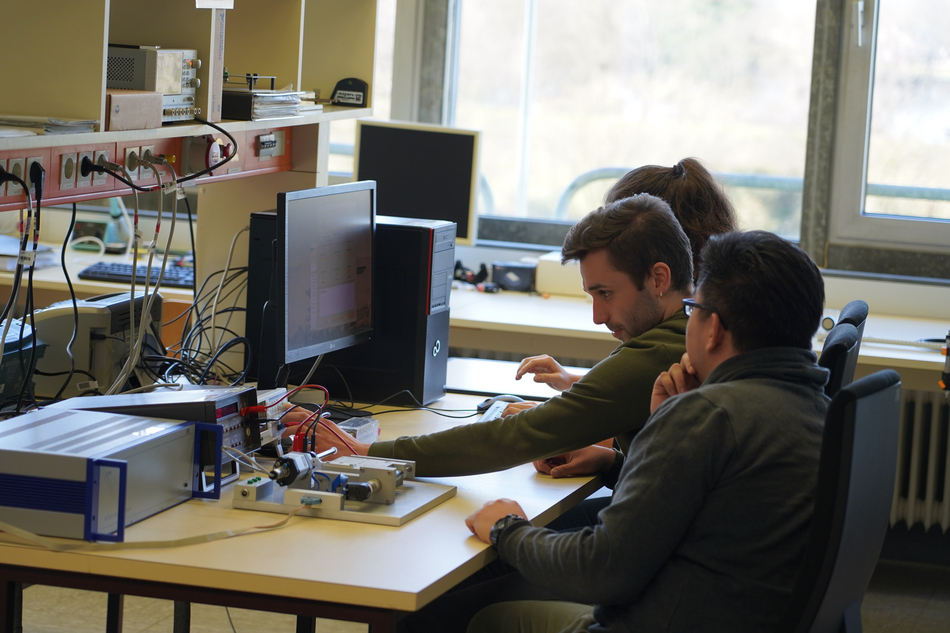Labor Mess- und Sensortechnik
Measurement and Sensor Engineering
Profile and objectives
In measurement technology, the term sensor refers to the sensor as the primary element in a measurement chain. The number of sensors surrounding us is characterized by constant growth, the end of which is not in sight. Everyday objects such as smartphones or automobiles, current questions on the Internet of Things and Industry 4.0, but also the increase in efficiency of existing structures and processes in industrial automation are inconceivable without sensors and the associated measurement technology and intelligent evaluation.
Internships and Tutorials
The measuring and sensor technology laboratory of the Offenburg University of Applied Sciences represents the state of the art for selected areas of measuring technology. In the laboratory, students have the opportunity to familiarize themselves with the design, location and evaluation of selected sensors and principles of measurement technology.
These include:Strain gages: Measurement of material stress and weight.
- Strain gages: Measurement of material stress and weight.
- Pressure sensors: Construction of different sensor principles, measurement of levels and level differences.
- Correlation measurement technique: Non-contact velocity measurements on surfaces, determination of distances with the propagation time correlation.
- Laser interferometry: Measurement of smallest length changes with a resolution of 10 nm. Use in the inspection of machine tools for dimensional accuracy.
- Computer-aided measurement signal evaluation: Comparison of different sensors and evaluation with model-based software (LabView).
- Linear differential transformers: Design and function with signal evaluation and conditioning for precise length measurement in the micrometer range.
- Length measurement with radar and ultrasonic sensors: Comparison of different principles for level determination.
- Magnetic field measurement with microelectromechanical systems (MEMS): Use of Hall and fluxgate magnetometers for the determination of the earth's magnetic field.
The experiments are continuously adapted and always combine the sensors presented in the lecture with the associated electrical measurement technology and signal evaluation, so that current developments in sensor technology are taken into account.
